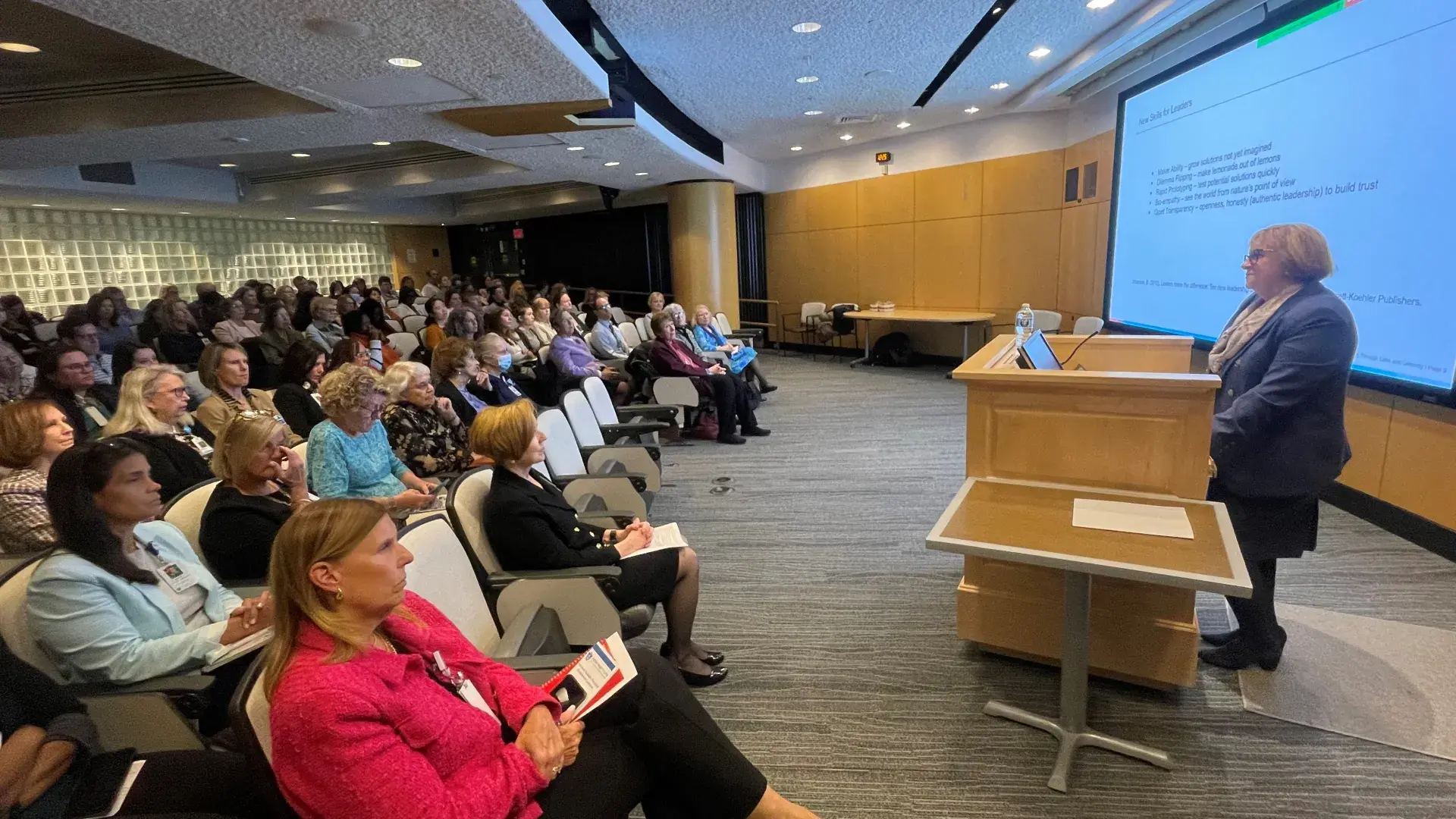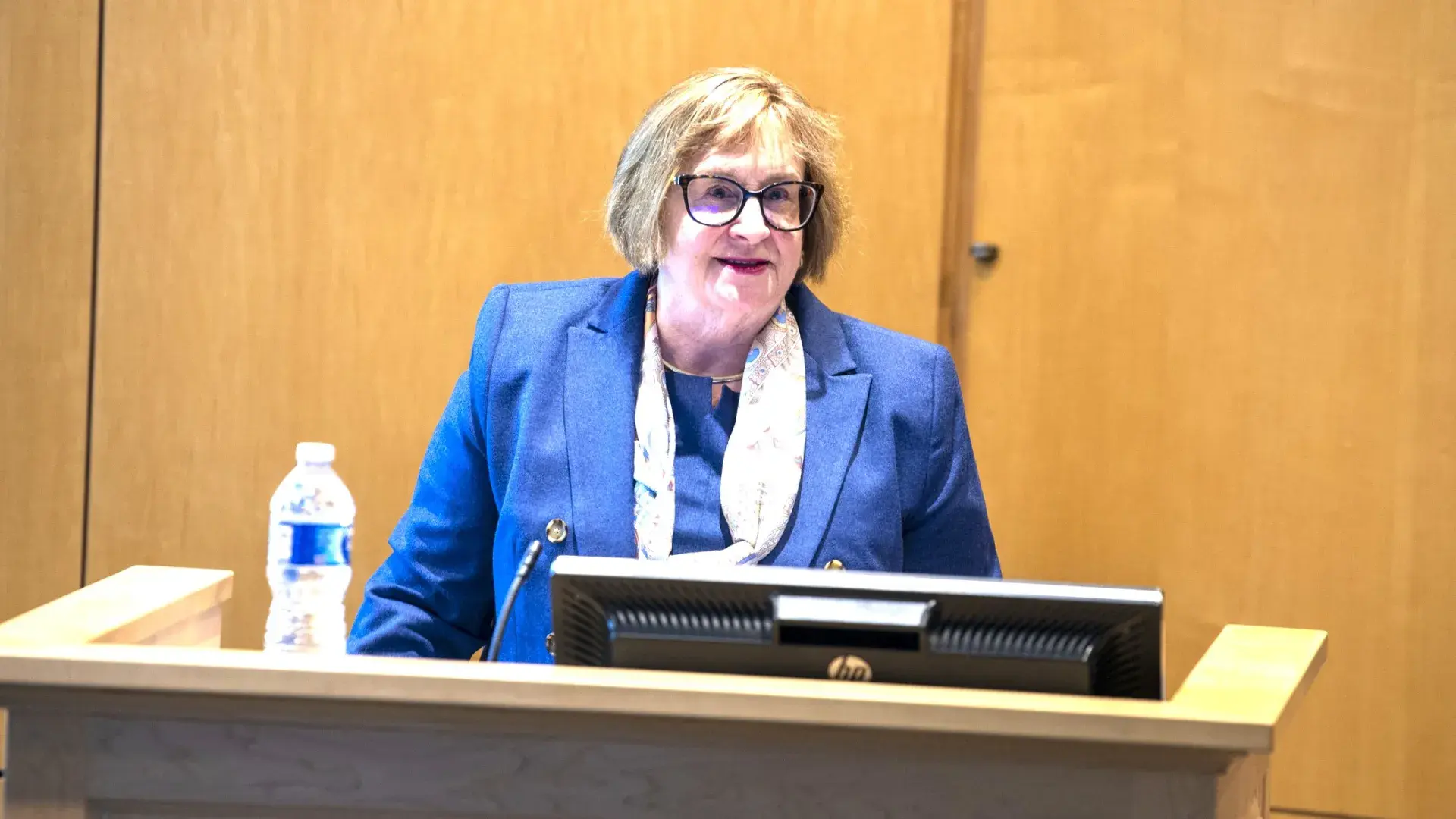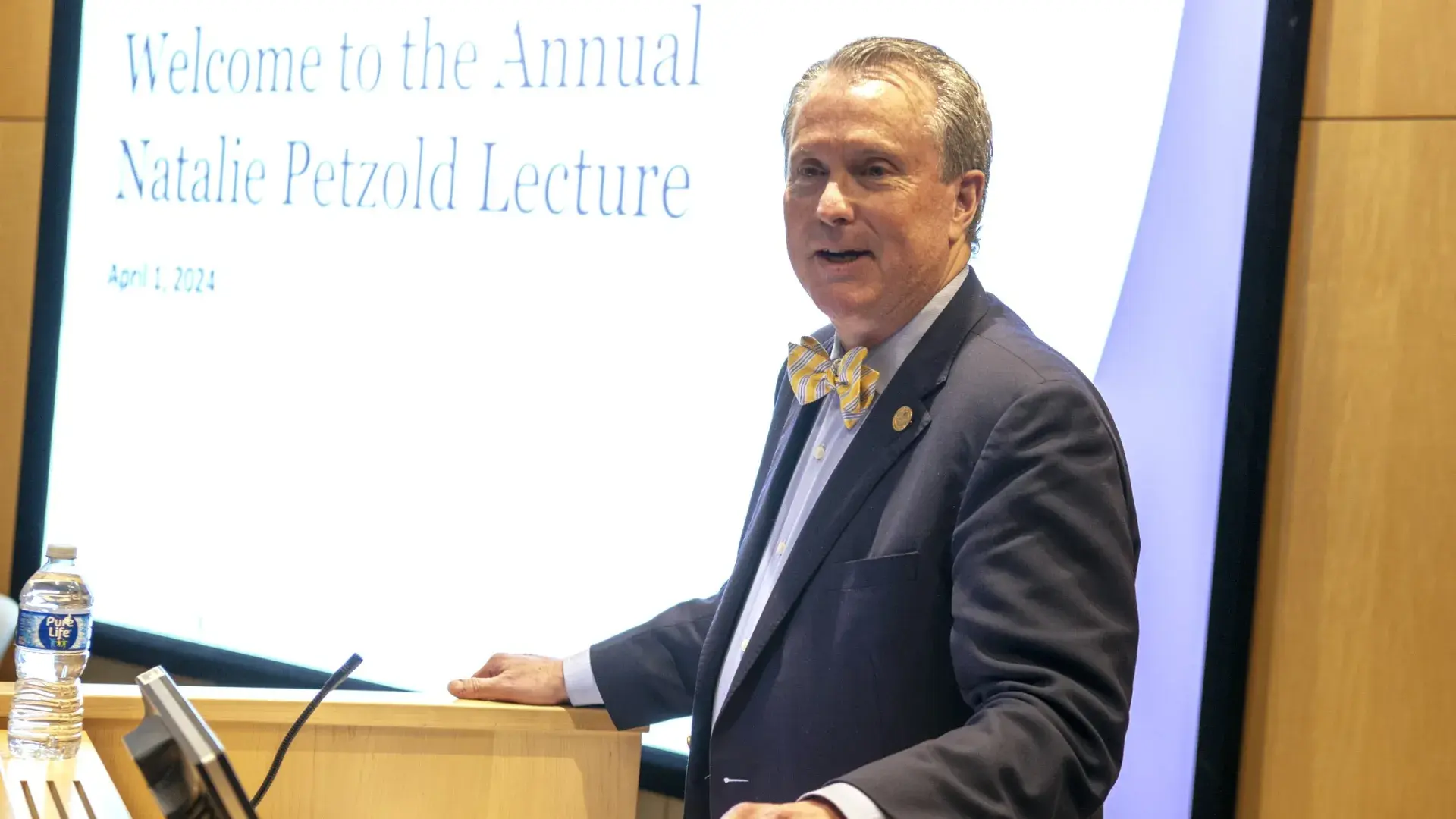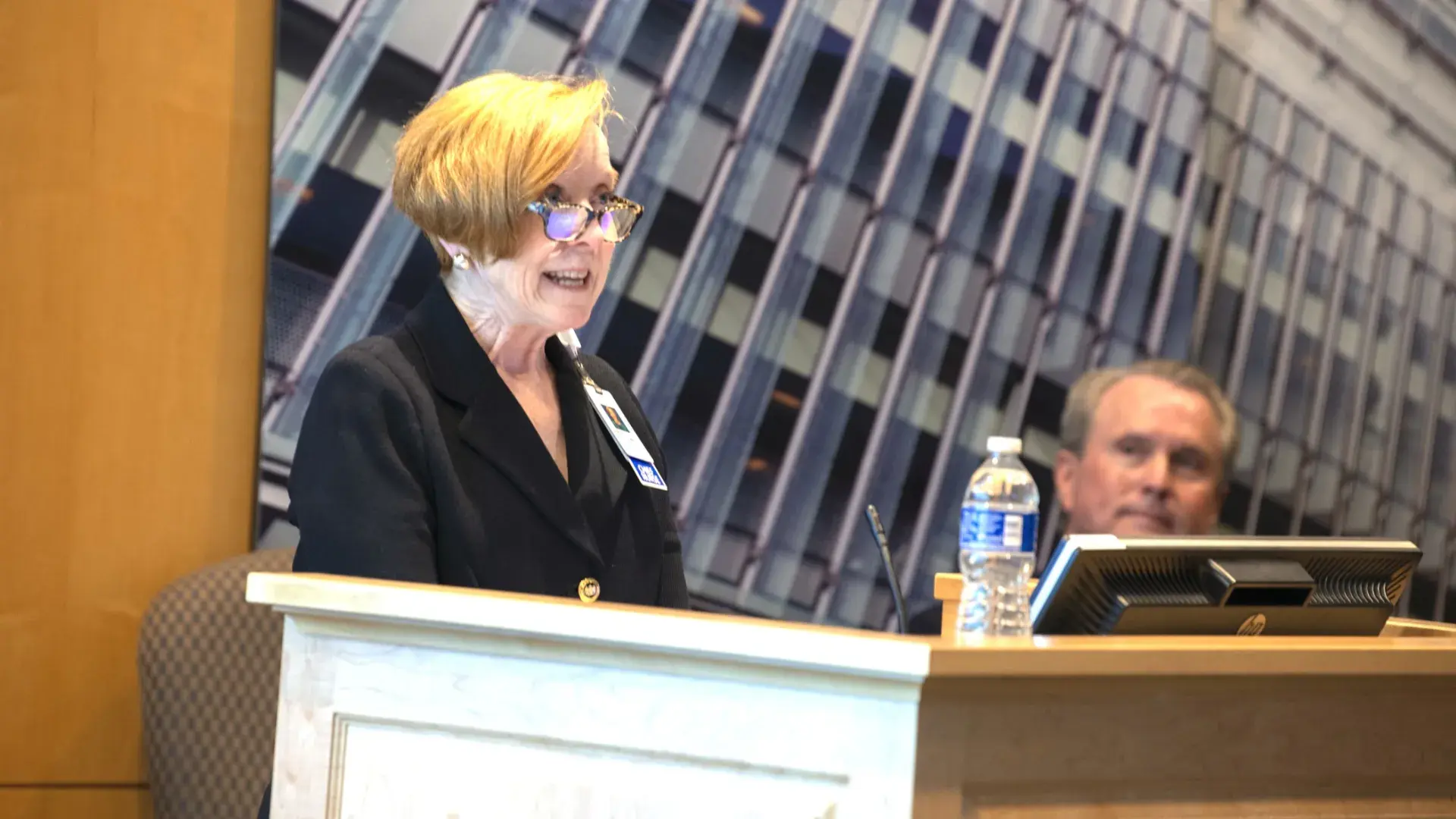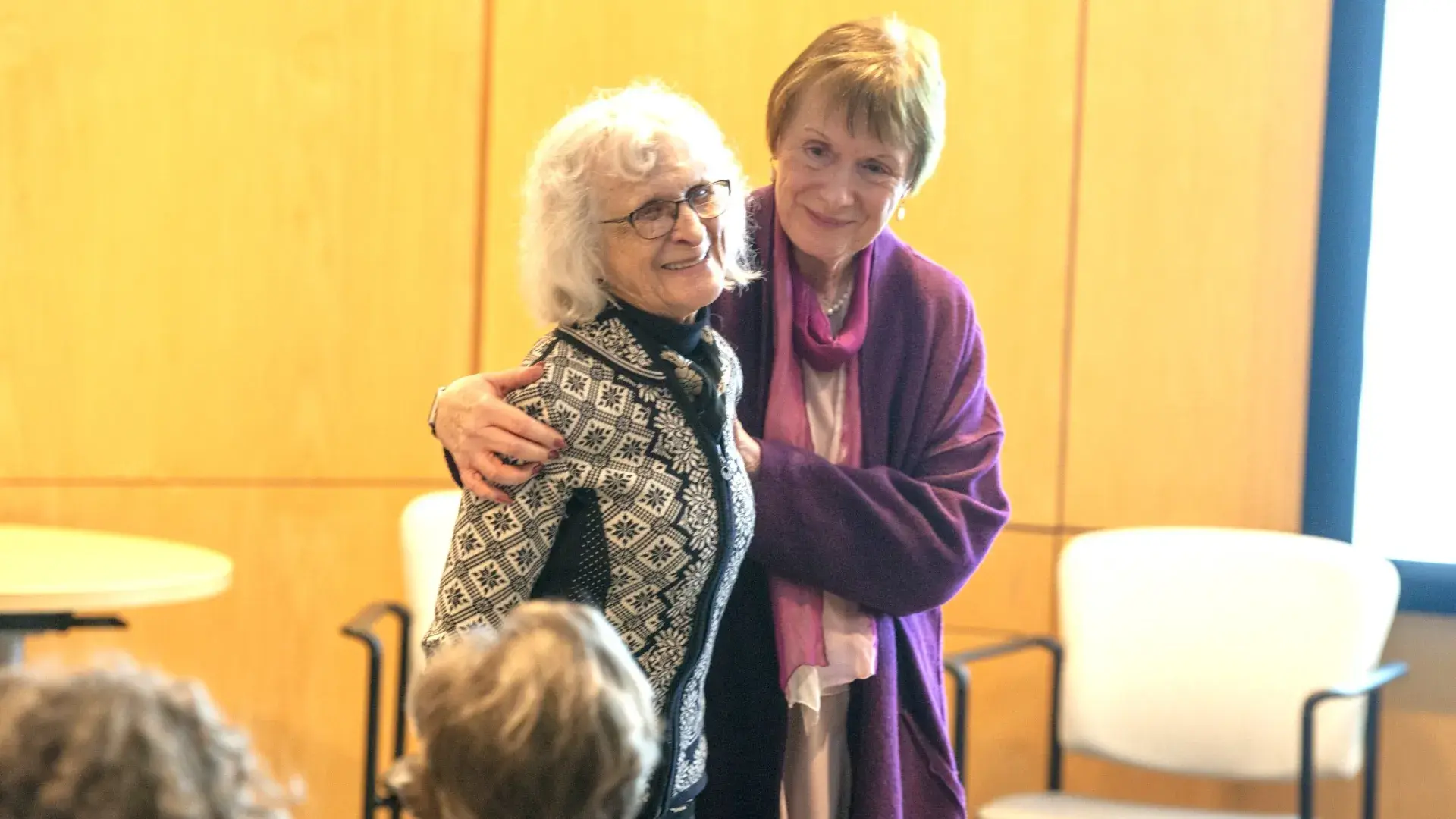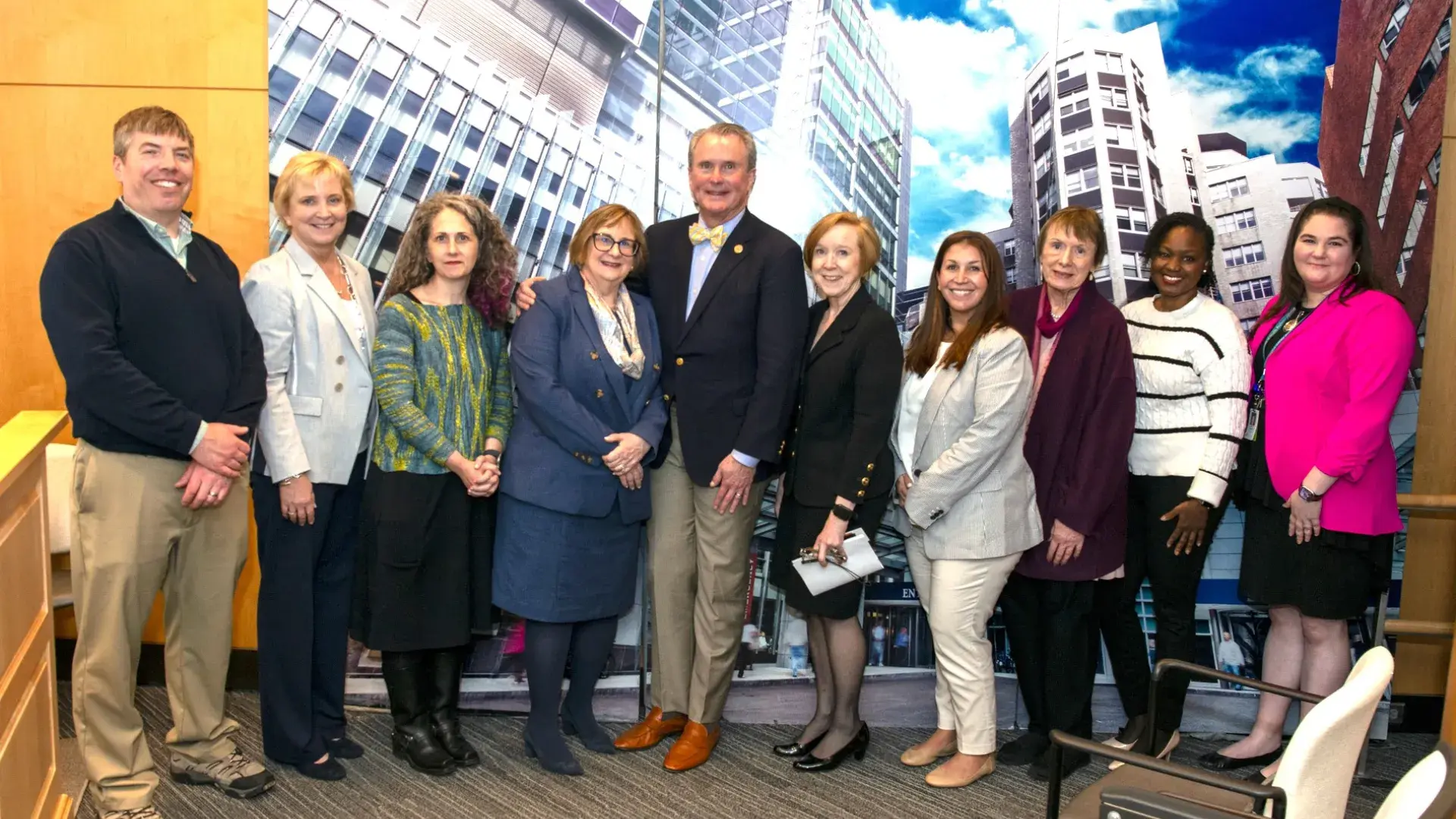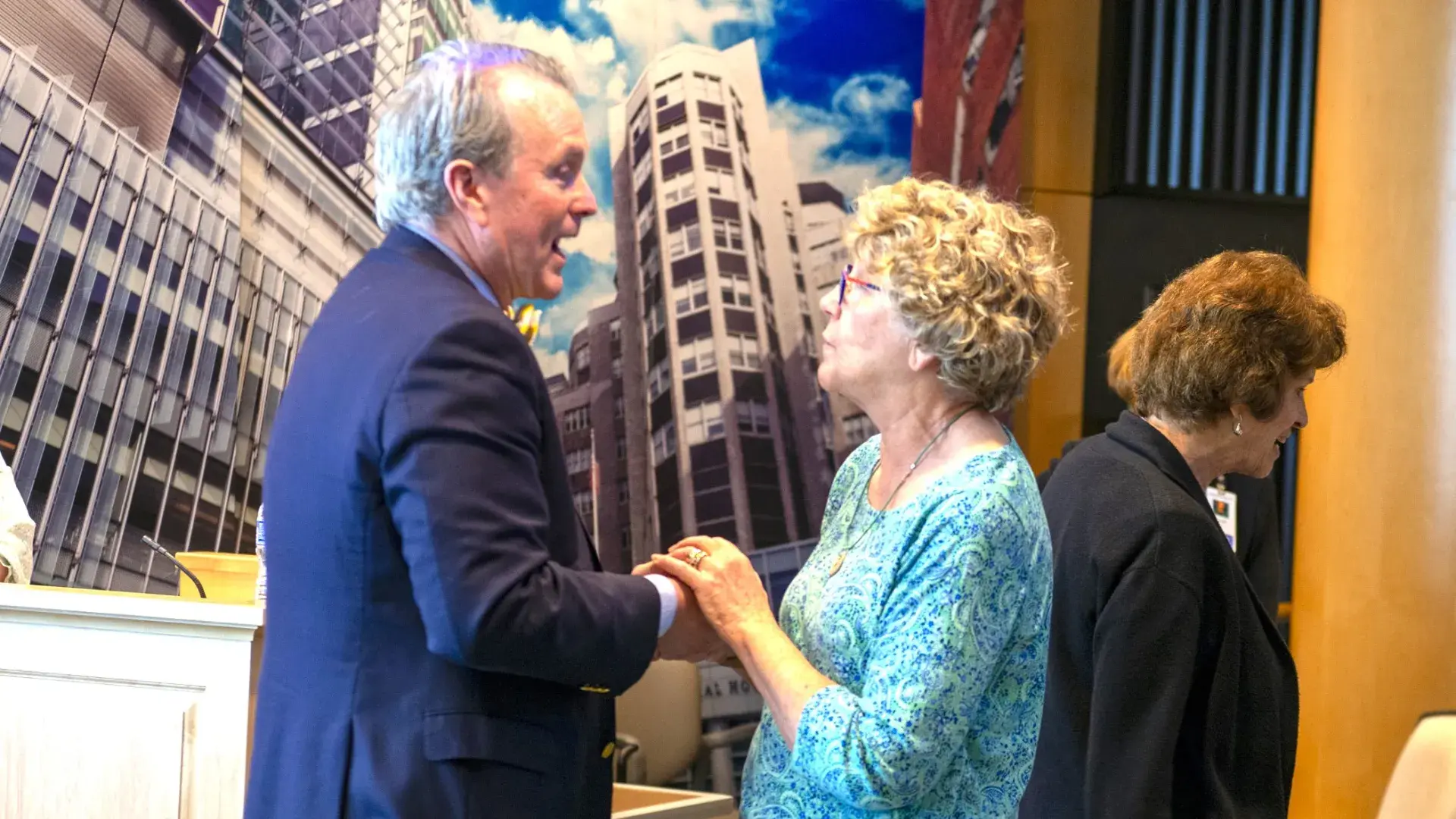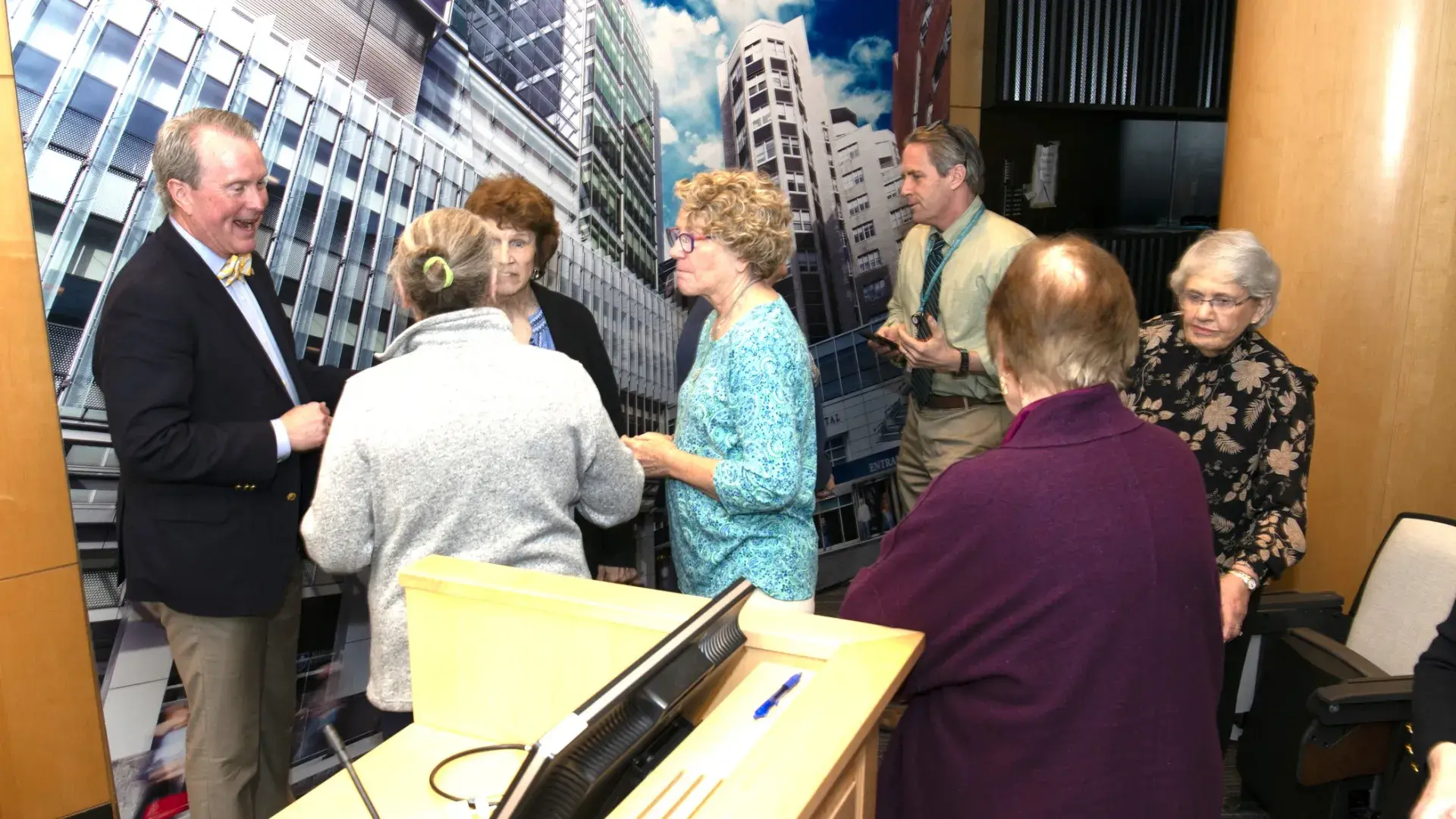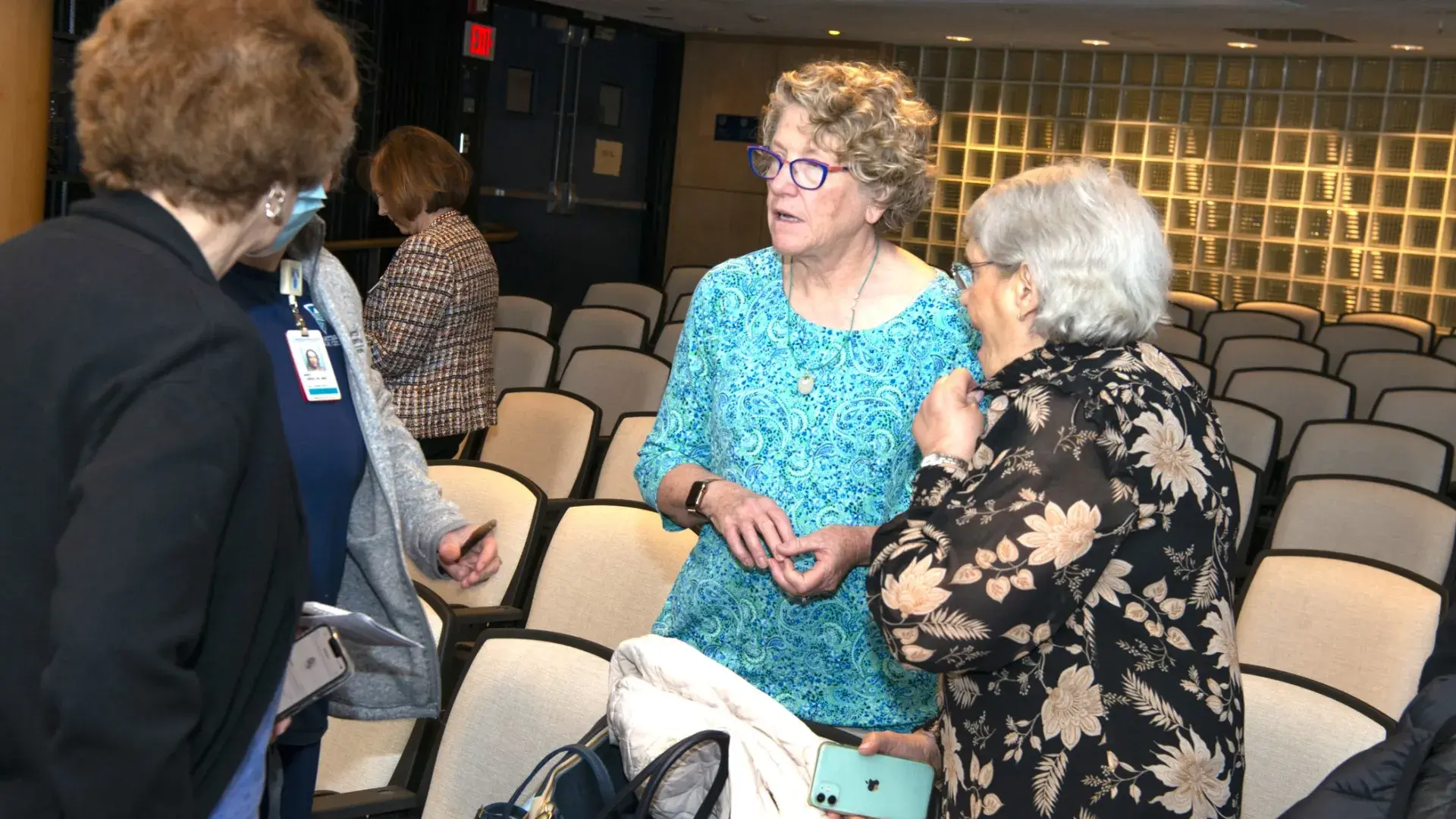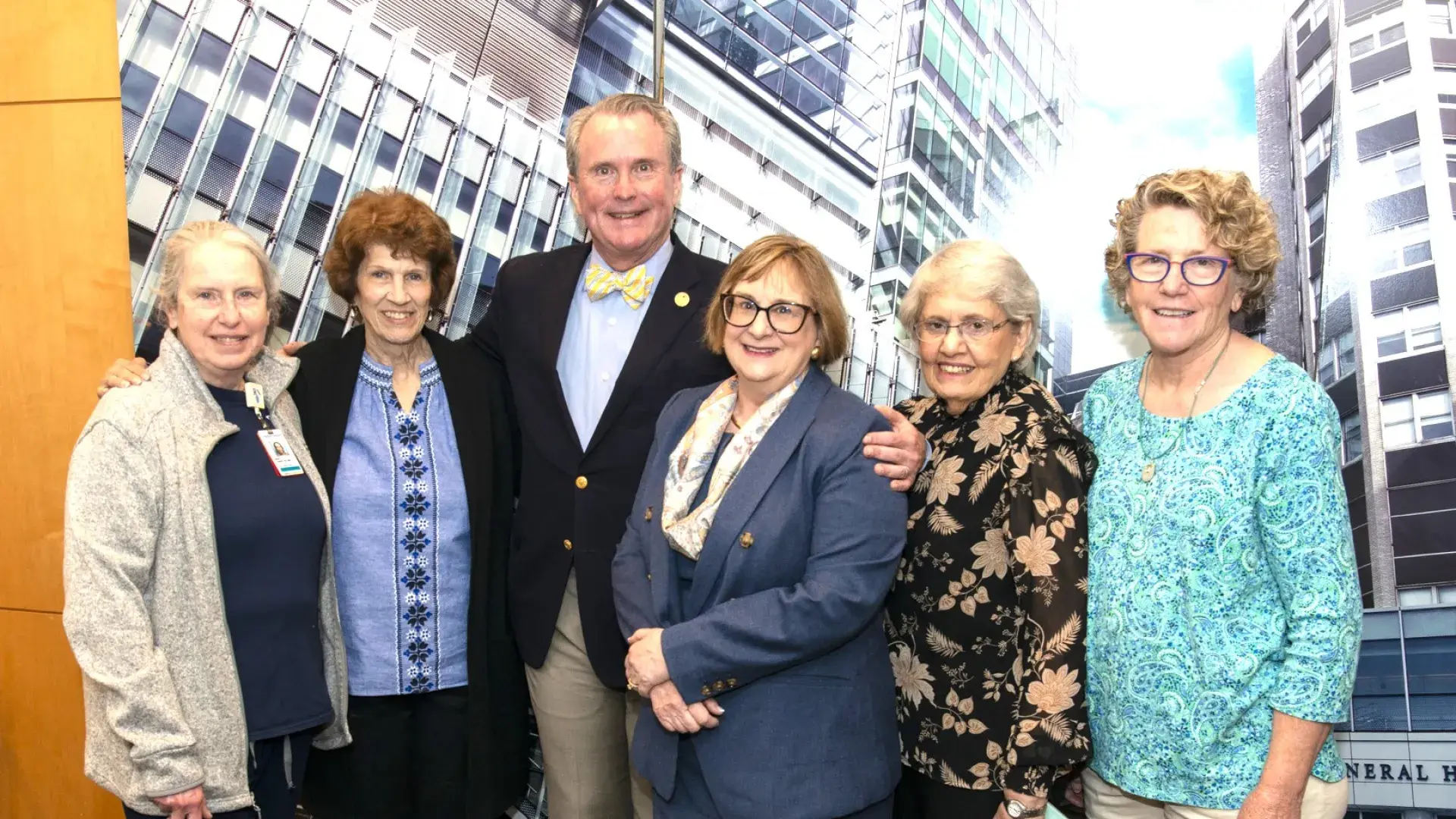
Successful co-hosted event held at Massachusetts General Hospital attracts MGH Institute and MGH nurses and clinicians; may be blueprint for future Petzold lectures
Nurses are prepared for and can handle anything thrown at them. It’s part of their DNA and part of the job. But for Dr. Kimberly S. Glassman, one night was unlike any other. She was chief nursing officer at NYU Langone Medical Center when Hurricane Sandy hit its apex.
“I sent an email to all the nurse managers who were sheltering in place with us that night,” recalled Glassman, now a professor and dean of the Mount Sinai Phillips School of Nursing in New York City “And all these emails come back, ‘We're fine.’ Except for the nurse manager who was covering pediatrics. She said, ‘We’re black. Can you come up here right now?”
Glassman was the featured speaker during the third Annual Natalie Petzold Endowed Lecture on Monday, April 1, co-hosted by the MGH Institute and Massachusetts General Hospital.
“And I walked upstairs to the PICU and NICU and it was dark and silent. There was no noise - dead silence - meaning that no ventilators weren’t working, no monitors were working,” said Glassman, as some in the audience gasped when they learned the superstorm had knocked out power to the pediatric wing. “And I knew at the time that it was my worst sighted fear in the hospital. I said to my nurses, ‘Prepare to get everybody out of here’ because they were the experts on it. I trusted that they knew what they were doing.”
And the nurses did. One would carry a tiny baby while other personnel each carried a piece of equipment that was attached to the baby. In lockstep, the team walked down nine flights of stairs. One by one they went – in the dark.
“We had medical students holding flashlights in the stairwell,” remembered Glassman. “And once they got down to the first floor - we were flooded up to the first floor, so those floors weren’t usable because they were underwater – the baby was taken by the EMS team onto a stretcher. And this is how we took them out.”
A congratulatory call from President Barack Obama would follow, as would the recovery. The lesson here – let the seasoned, experienced people lead the way.
“Although events are different, it’s the same strategy for all. And leadership does make a difference,” advised Glassman.
Glassman’s presentation was titled, “Leading Through Calm and Calamity.” The veteran nurse leader didn’t disappoint, ticking off major events she lived through during her 46-year career that included blackouts, COVID-19, hospital fires, hurricanes, and 9/11.
“I think 9/11 was probably my first life event that showed me the world is different,” said Glassman, who spent 42 years of her career at NYU Langone Health. “Being in New York during 9/11, I was in an office, and I watched one of the World Trade Towers fall. I didn’t know what I was seeing. I couldn’t believe what I was seeing.”
She reminded the audience the internet didn’t work the way it does today, where there’s constant social media updates, so information came much slower then. Faster information may have altered the Herculean task Glassman was charged with.
“My job was to set up a second emergency room for those people who never came.”
Speaking in Boston was a coming home of sorts. Not only did Glassman earn her RN diploma from the Massachusetts General Hospital School of Nursing (the diploma school that was a precursor to the MGH Institute), but her sister graduated from the MGH Institute’s nurse practitioner program in 1993. Lastly, Glassman’s mother – who was seated in the front row - worked at MGH as a nurse, then a supervisor.
“Not many of you have had the pleasure of speaking in front of your mother,” said Glassman, as the room erupted in laughter. “This is interesting.”
Before Glassman took the podium, Dr. Margie Sipe, assistant dean of the Institute’s nursing school, introduced the audience to Petzold, who was the last director of hospital’s diploma nursing school that closed in 1981 and who subsequently served as dean of students at the MGH Institute during its formative years and she remained a supporter until her death in 2012.
“I was fortunate to know Miss Petzold in the early days of my academic career,” said Sipe. “I found her to be warm, knowledgeable, and a true believer in the School of Nursing. I believe that she would have been proud for all that the IHP School of Nursing and the nursing profession has and will continue to accomplish.”
On this day of connections to Mass General Hospital and the MGH Institute, Glassman added another one – to Natalie Petzold herself.
“Miss Petzold admitted me to the school. And I am really thrilled to be the first Petzold lecturer who actually knew Miss Petzold,” she said to laughs. “I think that’s pretty cool. You had wonderful speakers beforehand, but this is a nice connector here.”
It was a fitting connector, as was the change in venue that helped connect more IHP faculty and MGH clinicians to this annual talk.
“We’re thrilled about the attendance and the engagement and obviously, it's a variety of audiences,” said School of Nursing dean Dr. Ken White of the packed audience. “We have our faculty, our IHP staff, lots of nurse directors and nurse leaders from MGH, and staff nurses too. So, it’s a great turnout and wonderful to see the mix of colleagues and friends.”
Dr. Debbie Burke, Senior Vice President for Patient Care and Chief Nurse of Massachusetts General Hospital, referenced the healthy turnout and strengthened relationship between the IHP and MGH.
“Ken and I have been working together for a few years now to try to tighten the relationship between the School and MGH,” said Burke, “and so, this is just another example of our coming together to try to do things jointly.”
Cooperation over competition was how Glassman ended her presentation on the best ways to lead.
“If you can work together in a crisis, maybe there are some ways you can work together outside of a crisis for the good of the people,” she said. “I think embracing innovation and prototyping is important. It is imperative during emergencies.”
Do you have a story the Office of Strategic Communications should know about? If so, let us know.
